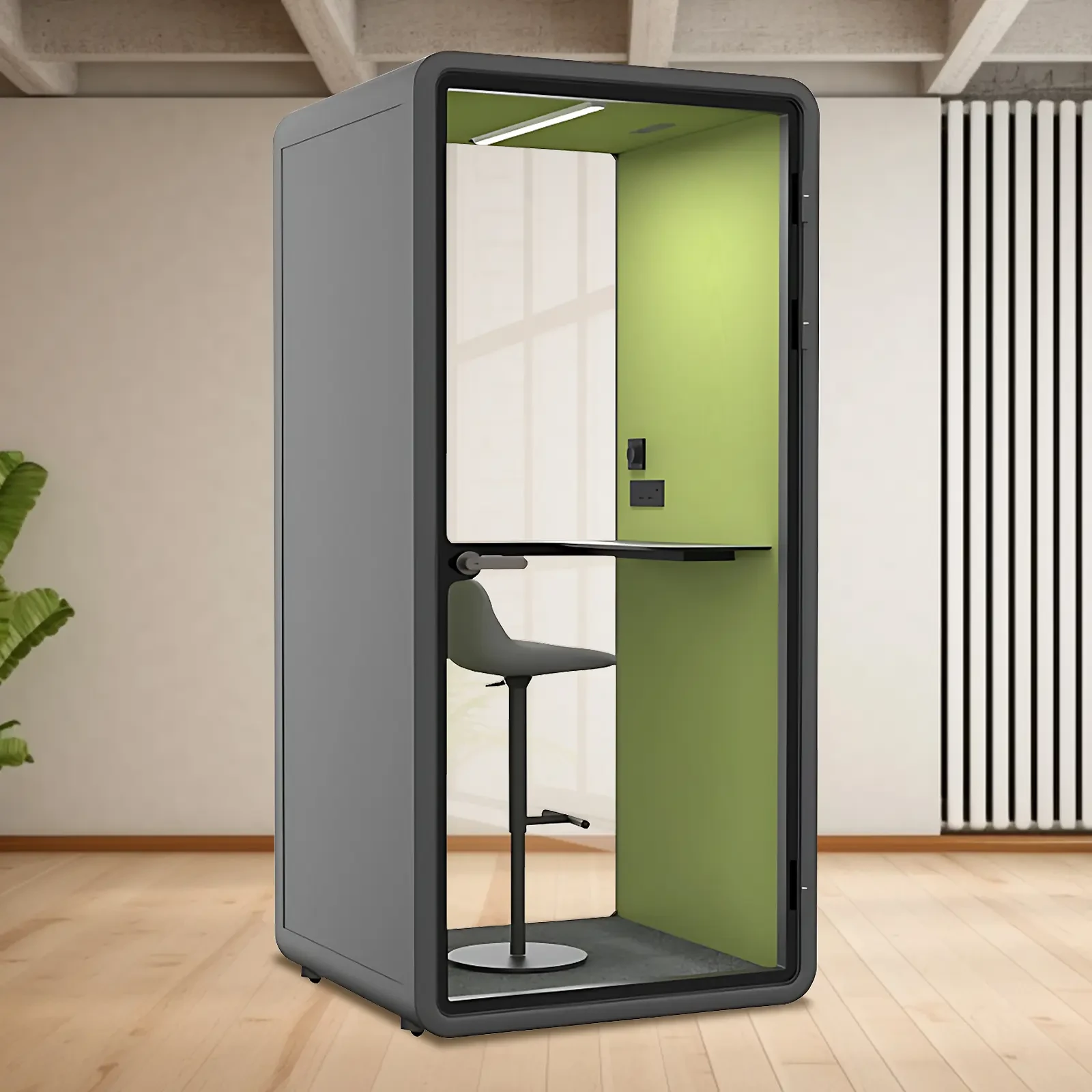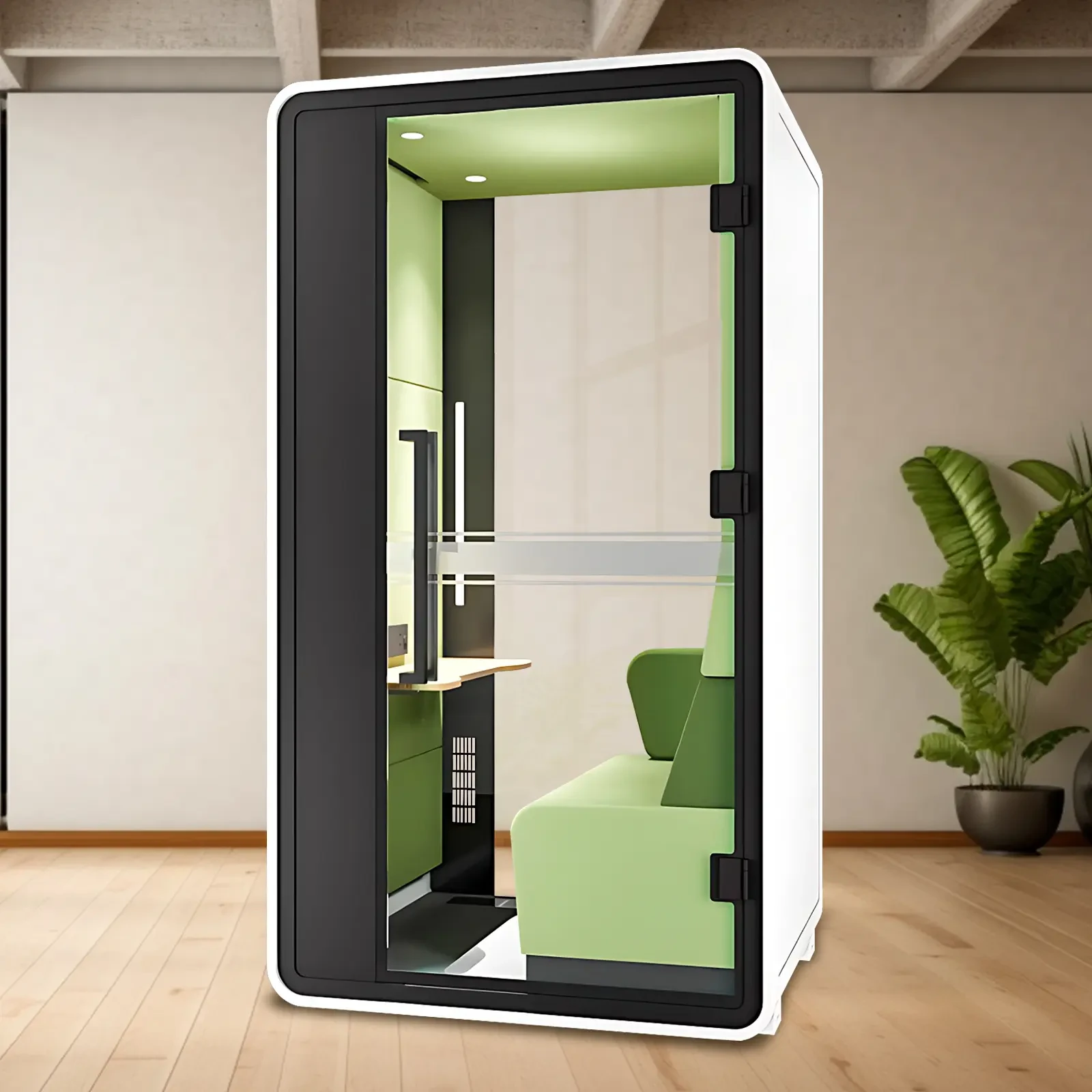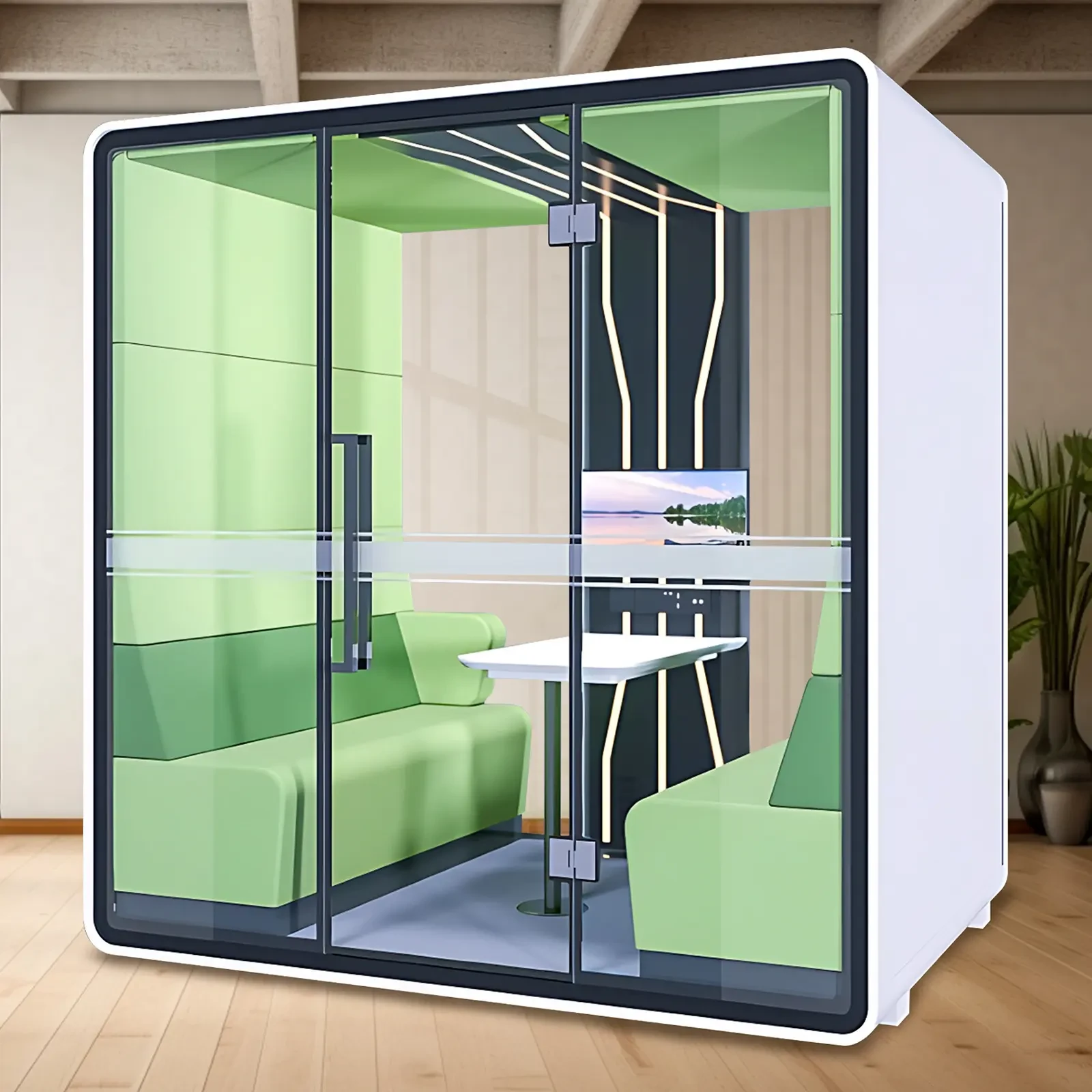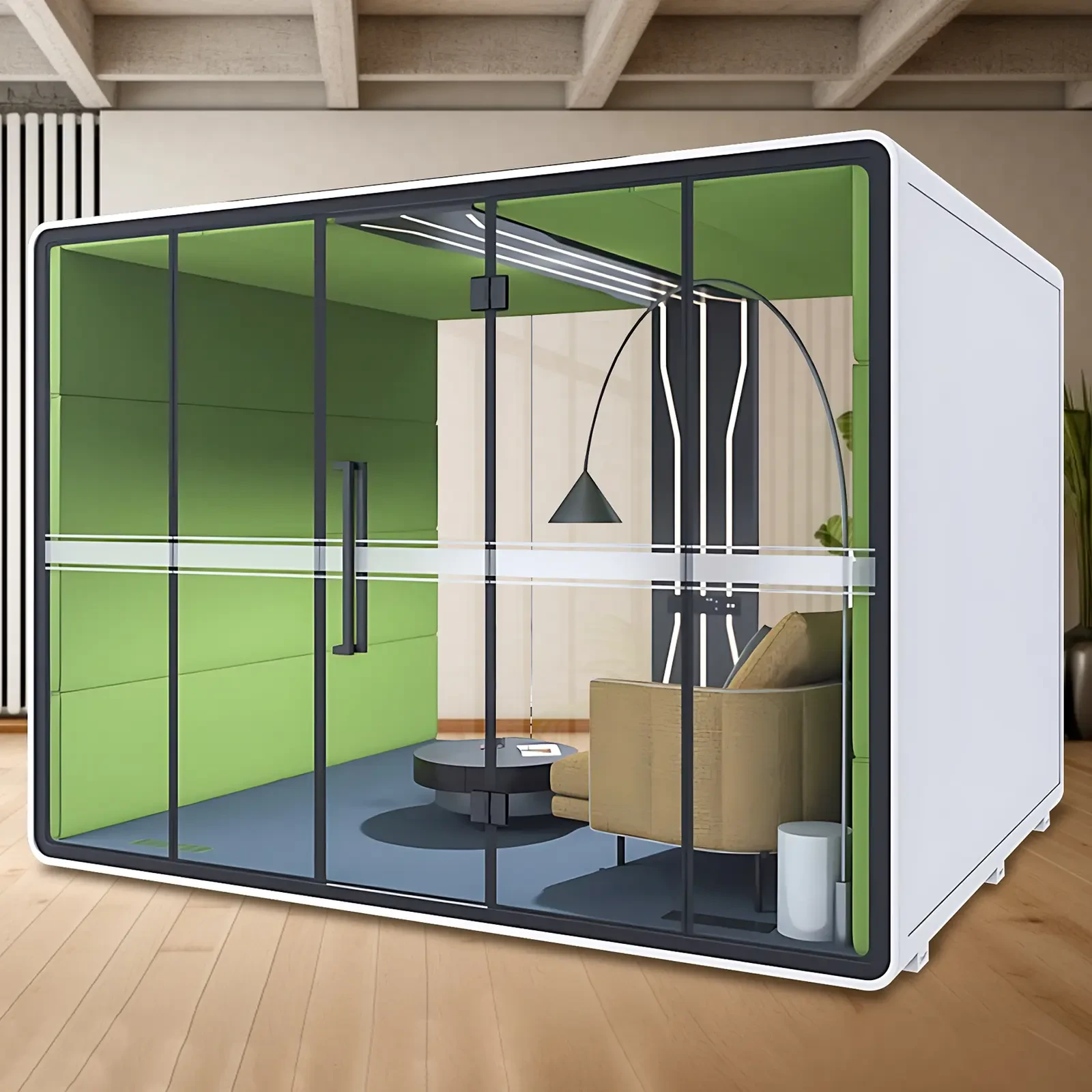With the increasing acoustic requirements of modern office environments, quiet cabins have emerged as a popular choice for many companies seeking to improve their work environments. The core function of a quiet cabin lies in its excellent soundproofing. As a key component of a quiet cabin, the properties of glass determine its performance and comfort.
The primary advantage of glass in quiet cabins is its soundproofing properties. This specially designed glass, utilizing advanced acoustic technology, effectively blocks external noise, ensuring a quiet environment. At the same time, it does not affect light transmission, ensuring natural daylighting and avoiding the oppressive feeling caused by soundproofing.
In addition to its soundproofing properties, this glass also offers excellent thermal insulation. In winter, the temperature inside the quiet cabin is less susceptible to cold weather, maintaining a relatively stable environment and providing a comfortable workplace for office workers. In summer, its excellent thermal insulation effectively blocks high temperatures, reducing the need for air conditioning, resulting in both energy savings and environmental benefits.
Furthermore, this glass material offers a high degree of transparency and clarity. Even in low-light conditions, the glass maintains a clear field of view, allowing workers to observe the surrounding environment at all times and enhancing their sense of security while working. Furthermore, its transparency creates a more spacious feel within the silent office, reducing the discomfort of feeling confined.
This glass material also excels in terms of safety. Its strong impact resistance effectively protects workers even in unexpected situations. Furthermore, its fire resistance has been rigorously tested, ensuring it provides a sufficient degree of protection in emergencies such as fires.
Of course, the environmental friendliness of the glass material is also a key consideration. The production process strictly avoids the use of hazardous substances, meeting environmental standards, protecting workers' health while also meeting the demands of modern society for sustainable development.
In summary, the glass material used in the silent office boasts multiple advantages, including sound insulation, heat preservation, transparency, safety, and environmental friendliness. These qualities combine to create an excellent acoustic environment and a comfortable workspace, providing modern workers with an efficient, comfortable, and healthy work environment. In the future, with the advancement of technology and the improvement of people's requirements for office environment, I believe that this glass material will be used in more fields and contribute to creating a better office environment.

 USD
USD
 GBP
GBP
 EUR
EUR






